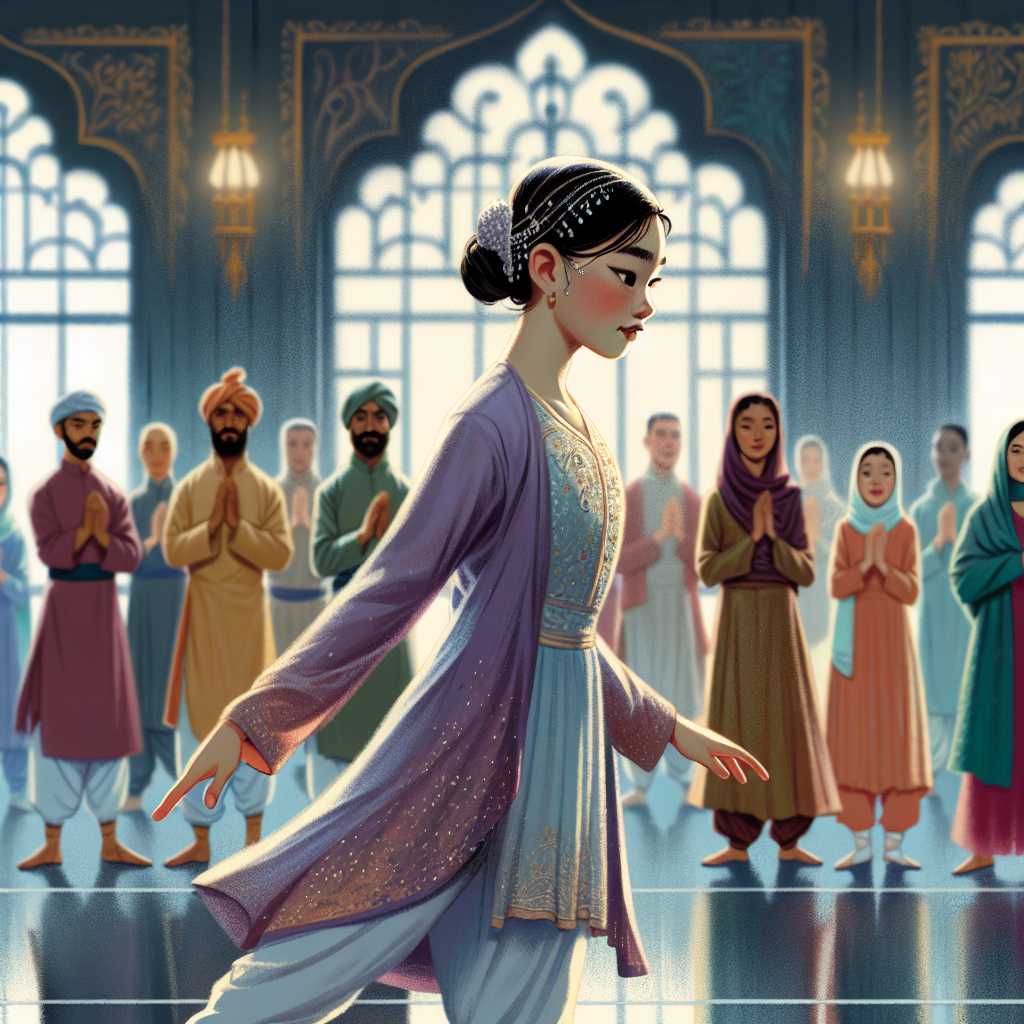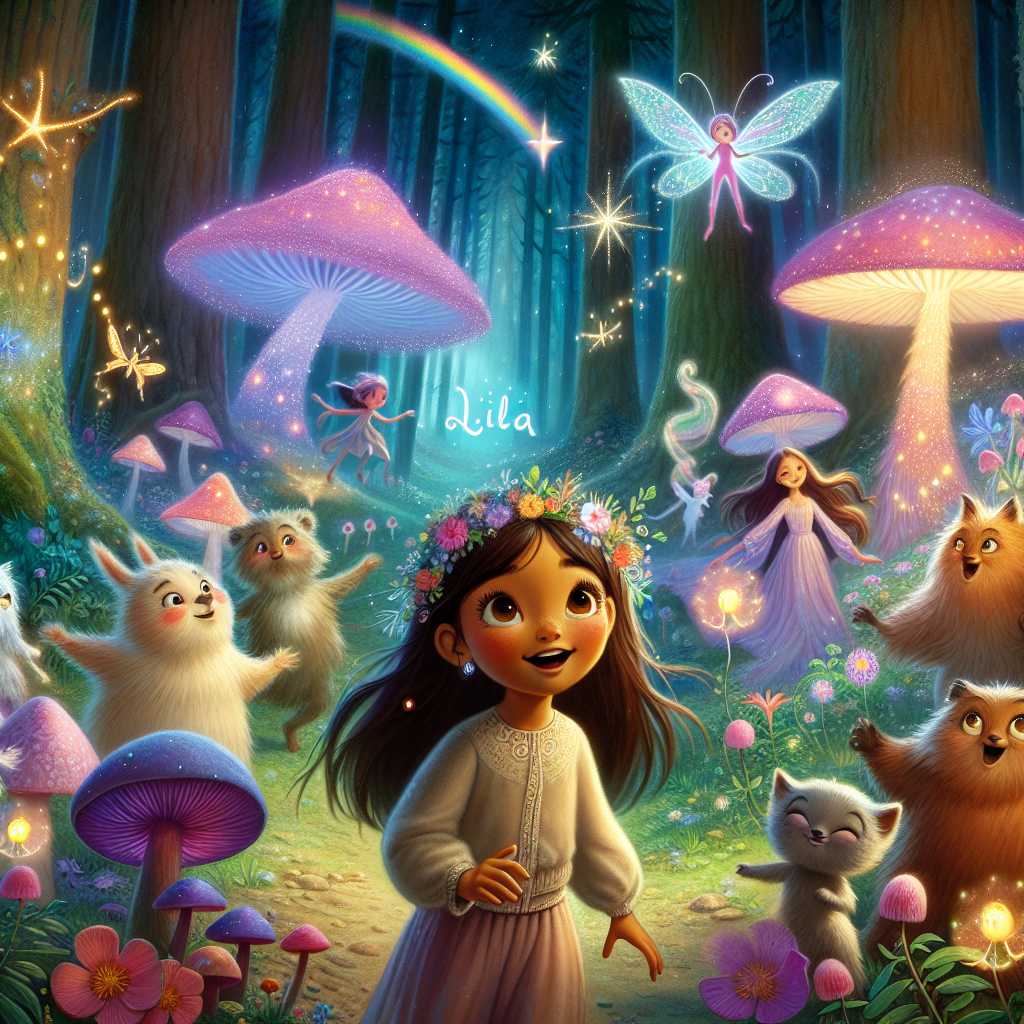
Aria's passion was dance, and she would often be found twirling and leaping gracefully along the paths of her village, her feet whispering tales in the language of rhythm. She dreamt of one day gracing the grand stages of the distant cities, her name synonymous with the art that flowed through her like the wind through the willow.
Her father, an honest and hardworking blacksmith, watched her with eyes brimming with love and whispered a silent prayer to the winds that carried her dreams: may they find fertile grounds to take root.However, life in the village was not easy, and oftentimes dreams were considered luxuries that few could afford. Aria's family faced dire times. A merciless drought had withered the life from once-lush fields and the smile from the villagers' sunken faces. Desperate to save his family from poverty, Aria's father approached her with a heavy heart.
"Aria, my child," he began, his voice faltering beneath life's weight, "you know your mother's illness demands a healer from the city. Our savings have run dry, and I fear we have no choice left but to..." He trailed off, unable to voice the sacrifice they both knew loomed over them.
A bittersweet understanding washed over Aria. The jewelry that adorned her during her dances—the silver bangles, the delicate anklets, and the small, precious stones that caught the sunlight's kiss—these must be sold. "I understand, father," Aria said, her resolve shining through the mist of sorrow. "We do what we must for those we love."
Days turned to sand, slipping away as Aria bade farewell to each piece that once sang in harmony with her movements. Yet, even as her treasures departed, her dreams clung on, weathered but unwavering.
Harvest after harvest failed, and the village bowed under relentless hard times. Aria donned the cloak of maturity, her dancing silently succumbing to the shadows. Nonetheless, she discovered new joy in teaching the younger children of the village to dance, to keep alive the spark that once ignited her soul.
News of a competition soon reached Aria's ears—a dance competition whose prize was a generous sum of money, enough to alleviate her family's suffering and secure her mother's treatment. The flame that had dwindled within her heart reignited, its light steady and sure.
Training commenced under the watchful gaze of dawn and dusk. Aria's limbs found the forgotten language of dance, her body recalling the poetry of motion that had once defined her very existence. The village children watched, their eyes alight with wonder, as Aria transformed the desolate landscape into her personal canvas.
"Belief," she told them, her breath keeping time with the beat, "is the first step. The second is action."
Each night, Aria danced beneath the stars, her silhouette a lone beacon of hope amidst darkness. And yet, doubt is often an uninvited guest that creeps quietly into our minds. It came to Aria on whispering winds, clawing at her resolve with cruel talons.
"What if your best isn't good enough?" it hissed. "What if you fail and lose everything?"
But Aria, steely in her determination, replied, "Then I shall dance upon my fears until they break beneath my feet. Success isn't promised to those who never falter; it's won by those who never yield."
The day of the competition finally dawned, bright and promising. Aria's father forged a simple yet elegant necklace for her—the last of his silver—a token of faith and pride. "For luck," he said, his smile creasing years into his weathered face.
Upon reaching the great hall in the city, Aria's spirit quivered. She was surrounded by dancers from far and wide, their costumes a cacophony of colors, their confidence as tangible as the charged air before a storm. A fathomless breath, and Aria stepped into the space laid out before her, the eyes of countless strangers weighing upon her shoulders.
The music began—a complex melody that weaved through the air like strands of fate in the loom of time. Aria's body became a vessel, her soul the mariner steering through the waves. Every fear, every doubt, was left to drown in the wake of her performance.
As the final note quivered into silence, Aria stood before a sea of faces, her chest heaving in the calm that follows the tempest. The applause that followed roared louder than the wildest river, a cascade of admiration honoring the beauty and tenacity they had witnessed.
Aria did not win the competition that day; she achieved something far greater. She won the hearts of many and the affirmation of her own undying spirit. The competition's sponsor, moved by her performance and her story, offered patronage for her mother's treatment and the opportunity for Aria to teach dance full-time.
Through toil and tears, with love's unyielding support, Aria learned that while dreams may shift and shimmer like mirages, they are the oasis that sustains us in life's desert. Her dance spoke of a journey—of loss, of struggle, and of the exquisite triumph that comes not from conquering the mountain, but from embracing the climb.
In a world that often insists on defining our limits, Aria's tale serves as a gentle reminder: our dreams are as boundless as the skies that cradle the mountaintops, and our spirits, when lifted through perseverance, can soar just as high.










